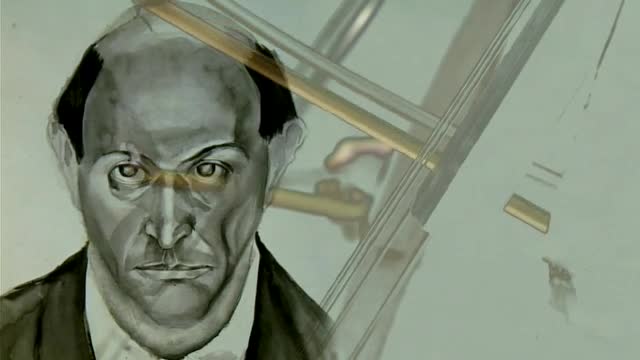Ashkenazy’s father was a musician. At eight Ashkenazy was enrolled at the Central Music School in Moscow where he studied piano with Anaida Sumbatyan for the next ten years. During his student years he gave many public performances and at the age of seventeen won second prize at the International Chopin Competition in Warsaw. At eighteen Ashkenazy joined the piano class of Lev Oborin at the Moscow Conservatory, in the same year winning first prize at the Queen Elisabeth Competition in Brussels and touring East and West Germany. The next year Ashkenazy was sent on a tour of North America, making his Carnegie Hall debut in October 1958, and after post-graduate studies at the Moscow Conservatory he was instructed by Soviet officials to enter the International Tchaikovsky Competition. He won joint first prize with John Ogdon and later that year toured America again, sealing his reputation.
Ashkenazy made his London debut with Beethoven’s Piano Concerto No. 1 in C major Op. 15 and Brahms’s Piano Concerto No. 2 in B flat major Op. 83. Although he kept his Soviet passport for another nine years, Ashkenazy settled in London and later in Iceland, the homeland of his wife. During the 1960s and 1970s he had a high-profile, extremely successful performing and recording career, appearing throughout the world in Europe, Australia, Japan, China, South Africa, North America and Canada. From the early 1970s he has also conducted and held many posts with international orchestras.
Ashkenazy’s repertoire is large, based on the great composers of the eighteenth and nineteenth centuries: Mozart, Beethoven, Schubert, Chopin, Schumann and Brahms. He also excels in Russian repertoire by Rachmaninov and Scriabin, and plays French music by Debussy and Ravel. Very recently Ashkenazy has turned his attention to Bach with his recording of Das wohltemperierte Klavier, complete. He also commissioned, conducted from the keyboard and recorded the Piano Concerto No. 3 by Finnish composer Einojuhani Rautavaara.
A multi-faceted musician, Ashkenazy understands a wide variety of music, and can give completely convincing performances of most of the music he chooses to play. His interpretations are often muscular, employing a wide range of tone and colour which can sometimes be too extreme for certain music.
For Decca, Ashkenazy has recorded a huge quantity of music, including the complete solo works of Chopin, the major works of Schumann, the complete piano concertos of Mozart, Prokofiev, Brahms and Bartók, the complete piano sonatas of Beethoven and Scriabin, the complete piano concertos by Beethoven (three times), and the complete music for piano and orchestra by Rachmaninov (twice), although he has recorded the Concerto No. 2 three times and the Concerto No. 4 four times.
Recordings from the 1955 Chopin International Competition and from Berlin in 1957 originally issued on LP by Columbia have been issued on two compact discs by Testament. The eighteen-year-old Ashkenazy gives mature performances of Chopin’s Piano Sonata in B minor Op. 58 and Piano Concerto No. 2 in F minor Op. 21.A 1960 recording for the Russian label Melodya of Chopin’s complete études is extraordinary for its combination of poetry, technique and musicianship. One of Ashkenazy’s first recordings for Decca, made in 1966, is a warmly poetic reading of the Piano Sonata in G major D. 894 by Schubert. From the same year comes his first account of Ravel’s Gaspard de la nuit. This earlier version is preferable to the later one from 1985 which is less transparent and somewhat harsher, the latter a feature of a number of Ashkenazy’s digital recordings for Decca. From 1967 come incisive and dramatic performances of Prokofiev’s Piano Sonatas No. 7 Op. 83 and No. 8 Op. 84.
Highlights from the 1970s include Ashkenazy’s first recording of the complete piano concertos by Beethoven from May 1972. This is a consistently delightful set where Ashkenazy is supported in no small measure by the Chicago Symphony Orchestra and Georg Solti, who at times attain the intimacy of a chamber music performance. From the same era come the complete piano concertos by Prokofiev and the complete works for piano and orchestra by Rachmaninov, both with the London Symphony Orchestra and André Previn. The later version of the Rachmaninov works with the Concertgebouw Orchestra and Bernard Haitink is also highly regarded. Ashkenazy rarely played Liszt, with the exception of the Mephisto-Waltz No. 1; however, in 1970 Decca released an LP containing this work, an impromptu, and seven of the Études d’exécution transcendante. These are impressive recordings, all of which have appeared on compact disc. Ashkenazy recorded Schubert’s Piano Sonata in B flat D. 960 in December 1985, and this is a fine reading.
Ashkenazy excels in the Russian repertoire and his recordings of Rachmaninov’s complete préludes, Études-Tableaux and music for two pianos are some of the best in the catalogue, as is his compelling recording of the ‘Corelli’ Variations Op. 42. In addition there are the complete piano sonatas and the Piano Concerto by Scriabin, a fine set of Shostakovich’s complete Preludes and Fugues Op. 87, a disc of Tchaikovsky’s piano works and Mussorgsky’s Pictures at an Exhibition. In the last work, Ashkenazy both plays the solo piano version and conducts his own orchestration of the work.
Critical opinion has been adverse for some of Ashkenazy’s recordings (particularly of Mozart and Scriabin) from the 1990s. It is true that the earlier recordings are nearly always preferable to the later remakes and later recordings, yet Ashkenazy is a great musician and one of the most renowned pianists from the second half of the twentieth century.
| Title | |
| WE WANT THE LIGHT (Film, 2004) | |

|
WE WANT THE LIGHT (Film, 2004)
Artists:
Ashkenazy, Vladimir -- Barenboim, Daniel -- Cologne Gurzenich Orchestra -- Cologne Opera Chorus -- Herz, Alice Sommer -- Kissin, Evgeny -- Lasker-Wallfisch, Anita -- Perlman, Itzhak -- Zukerman, Pinchas
Label/Producer: Christopher Nupen Film |
